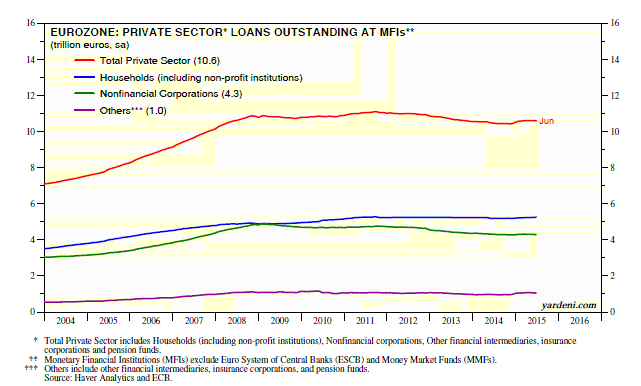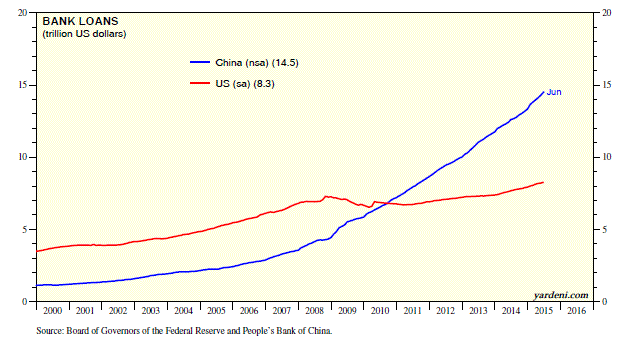
Economic growth can be like a drug. It can produce a real high, especially if it is laced with lots of debt. Fast growth justifies taking on more debt, and it also postpones the bad side effects of too much debt in the economy’s blood stream. It’s all one big rush.
The withdrawal pains can be severe once too much debt no longer stimulates the economy. Excessive debt can worsen the economic slowdown, which worsens the pain. The problem is that policymakers tend to respond to this turn of events by providing more doses of debt, hoping to make the pain go away.
It all reminds me of Eugene Landy. In 1983, he was employed as the psychologist for Brian Wilson of the Beach Boys. According to the movie “Love & Mercy” (2014), Landy treated Wilson for psychiatric issues with lots of drugs, which made Wilson more disturbed and dependent on his therapist. A 1992 restraining order barred Landy from treating or contacting Wilson ever again.
The global economy may need that kind of restraining order imposed on the major central banks and central planners. All of their meddling is resulting in bad vibrations for the global economy. Consider the following:
(1) Eurozone debt. Loans outstanding at Monetary Financial Institutions (MFIs) in the Eurozone rose €3.75 trillion to a record €10.87 trillion from January 2004 through January 2009. That borrowing binge helps to explain why loans have been essentially flat since then.
The 7/22 FT reported:
“Across countries that use the euro, average debt to gross domestic product reached 92.9 per cent in the first quarter of 2015, up from 92 per cent in the previous quarter and 91.9 per cent in the same period last year, according to figures from Eurostat, the EU’s statistical agency.”
On 7/14, the Central Bank of Italy reported that Italian public debt has risen upwards of 2.2 trillion euros in May, a new record for the Eurozone’s second-most indebted country after Greece. Italy’s debt is now at 132% of GDP, compared to Greece’s 175%. Both countries find themselves far from the 60% debt-to-GDP ratio target set by the European Commission.
(2) Chinese debt. China’s bank loans rose to a record $14.5 trillion during June, up a whopping $9.8 trillion since the start of 2009. They exceeded US bank loans for the first time ever during September 2010, and now are 76% greater.
The 7/15 BloombergBusiness reported:
“While China's economic expansion beat analysts’ forecasts in the second quarter, the country’s debt levels increased at an even faster pace. Outstanding loans for companies and households stood at a record 207 percent of gross domestic product at the end of June, up from 125 percent in 2008, data compiled by Bloomberg show.”
(3) Japanese debt. Japan’s gross debt is equivalent to 234% of its GDP. Its public debt was equal to about 85% of its GDP during Q1, up from 23% 20 years ago. A country report released by the IMF this month on Japan warned, “Japan’s public debt is unsustainable under current policies.” It projected that the debt ratio will rise to 290% by 2030.
Today's Morning Briefing: Bad Vibrations. (1) Making the pain go away with more debt. (2) Landy and the Beach Boy. (3) Getting some bad vibrations. (4) Eurozone may be binged-out. (5) China still on borrowing binge. (6) IMF says Japan’s debt is unsustainable. (7) The next Five-Year Plan. (8) Profits are deflating in China. (9) China sneezes. (10) Draghi still waiting for banks to lend to SMEs. (11) Focus on market-weight-rated S&P 500 Industrials.

